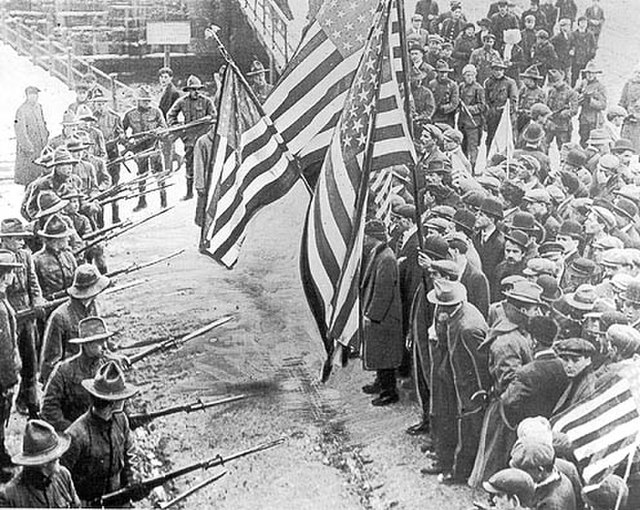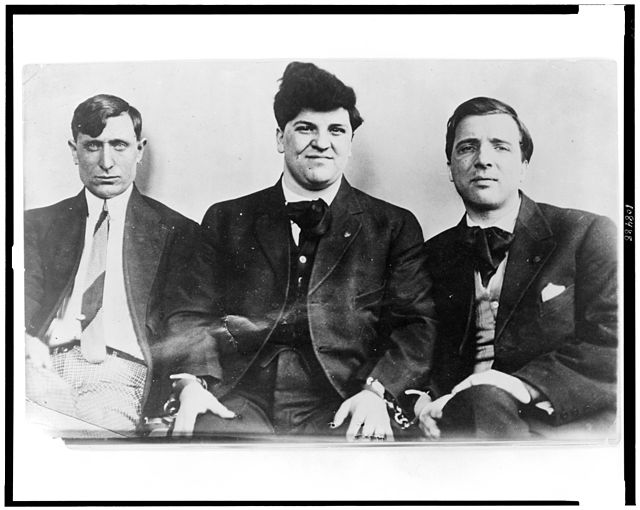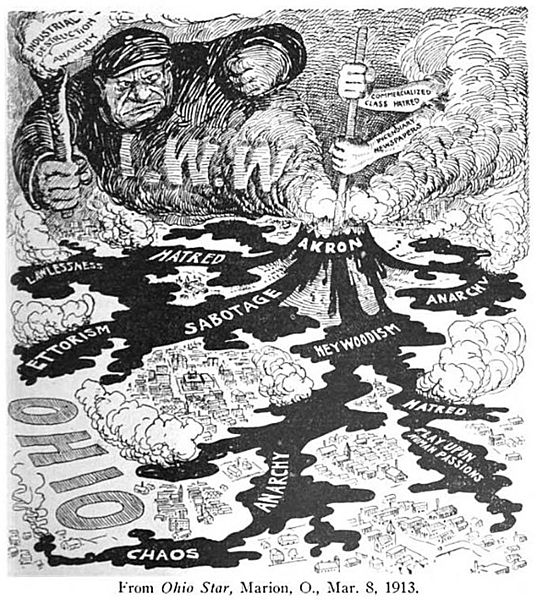1912 Lawrence textile strike
The Lawrence Textile Strike, also known as the Bread and Roses Strike, was a strike of immigrant workers in Lawrence, Massachusetts, in 1912 led by the Industrial Workers of the World (IWW). Prompted by a two-hour pay cut corresponding to a new law shortening the workweek for women, the strike spread rapidly through the town, growing to more than twenty thousand workers and involving nearly every mill in Lawrence. On January 1, 1912, the Massachusetts government enforced a law that cut mill workers' hours in a single work week from 56 hours, to 54 hours. Ten days later, they found out that pay had been reduced along with the cut in hours.
Massachusetts militiamen with fixed bayonets surround a group of strikers
Postcard of American Woolen Co., Washington Mills, Lawrence, Mass.
The Massachusetts National Guard mounted on horses during the strike.
Political cartoon The Lawrence Way by Art Young with the caption: "On February 24 and 25, soldiers and policemen forcibly prevented parents from sending their children away from Lawrence to cities which offered food and shelter."
Joseph James "Smiling Joe" Ettor (1885–1948) was an Italian-American trade union organizer who, in the middle-1910s, was one of the leading public faces of the Industrial Workers of the World. Ettor is best remembered as a defendant in a controversial trial related to a killing in the seminal Lawrence Textile Strike of 1912, in which he was acquitted of charges of having been an accessory.
J.J. Ettor (center), flanked by Joseph Caruso and Arturo Giovannitti, his co-defendants in the 1912 Lawrence trial
Employers feared "Ettorism". This 1913 anti-union cartoon from The American Employer depicts an IWW organizing drive as "a volcano of hate stirred into active eruption at Akron, by alien hands, which pour into the crater the disturbing acids and alkalis of greed, class hatred and anarchy. From the mouth of the pit rise poisonous clouds of suspicion, malice and envy to pollute the air, while from the cracked and breaking sides of the groaning mountain flow streams of lava of murder, anarchy and destruction, threatening to engulf in their path the fair cities and fertile farms of Ohio."
Joe Ettor addresses striking Brooklyn barbers in Union Square, New York City, May 17, 1913.







